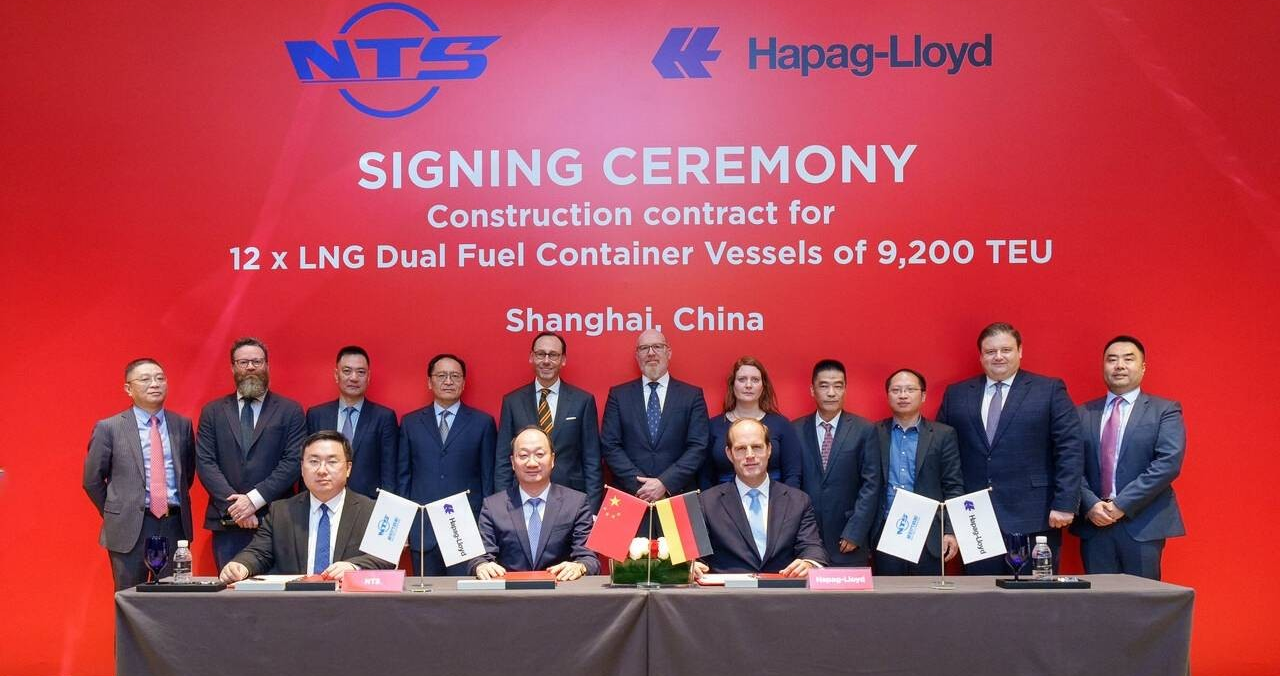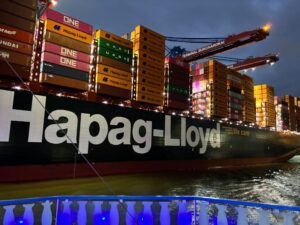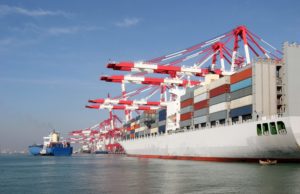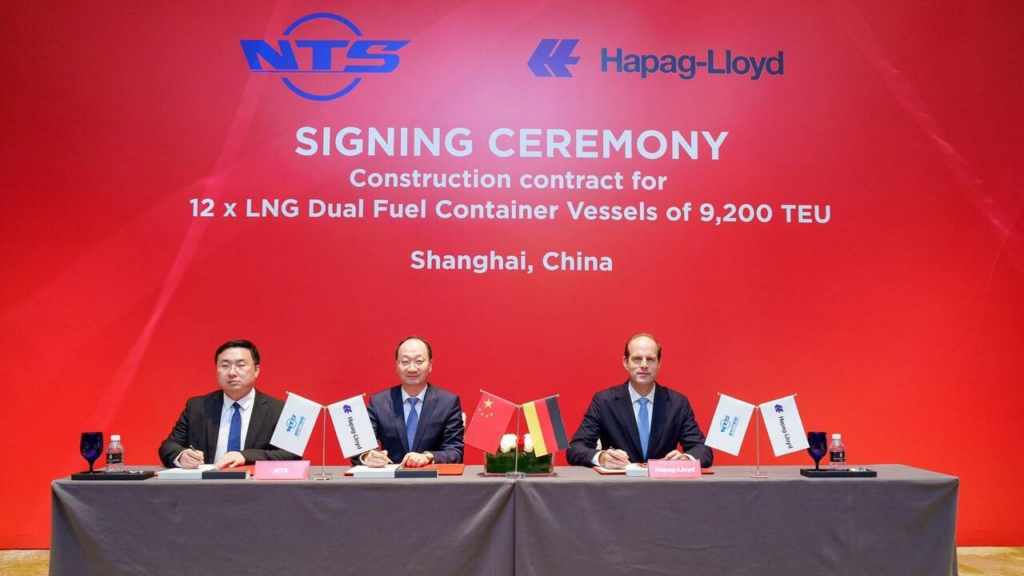
Photo credit: Hapag-Lloyd / Yuan Heng (Vice President NTS), Liu Haijin (CEO NTS), Dr. Maximilian Rothkopf (COO Hapag-Lloyd)
Hapag-Lloyd has signed a ‘milestone’ order for 24 container ships featured with liquefied gas dual-fuel engines. The company says the investment volume is roughly $4bln.
The container giant signed two contracts with two Chinese shipyards for a total of 24 new container ships.
Of these, 12 newbuildings, each with a capacity of 16,800 teu, will be built by Yangzijiang Shipbuilding Group.
These units will be used to expand the capacity of services that are already in place. An additional 12 ships, each with a capacity of 9,200 teu, have been ordered from New Times Shipbuilding Company Ltd. and will replace older units in the Hapag-Lloyd fleet that will be nearing the end of their service life in this decade.
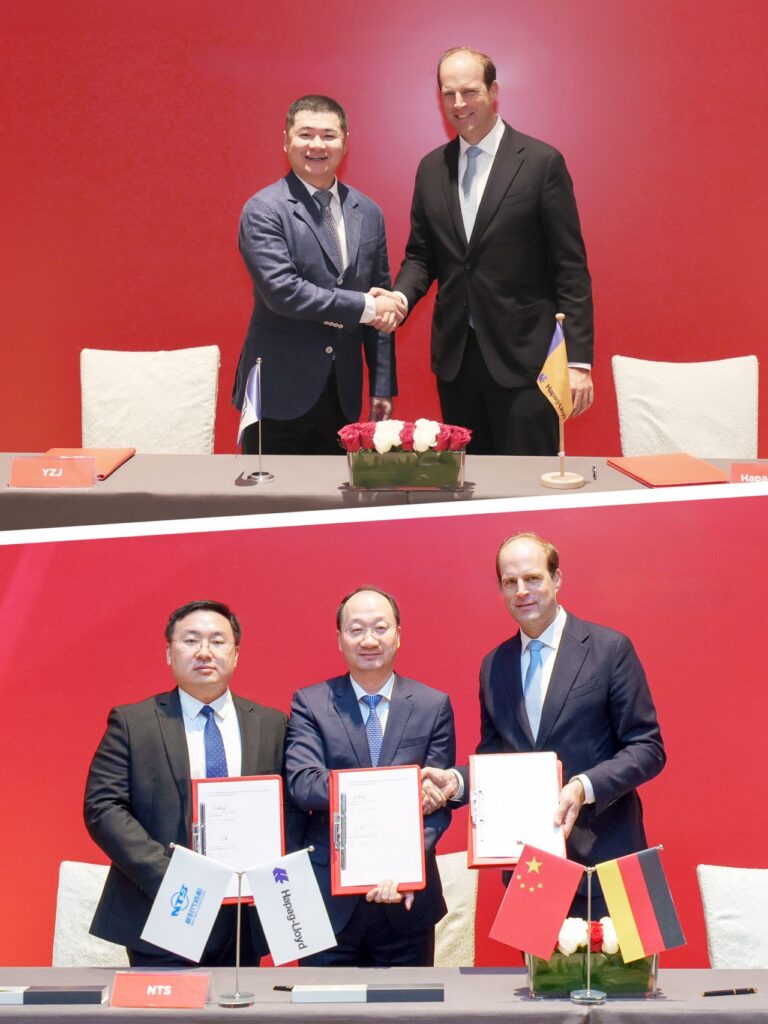
Chief executive Rolf Habben Jansen said this investment is one of the largest in the recent history of Hapag-Lloyd.
“It represents a significant milestone for our company as it pursues the goals of its Strategy 2030, such as to grow while also modernizing and decarbonizing our fleet. Operating a fleet of more efficient vessels will also enhance our competitive position, and thanks to the increase in capacity, we will continue to offer our customers a global, high-quality product,” Rolf Habben Jansen said.
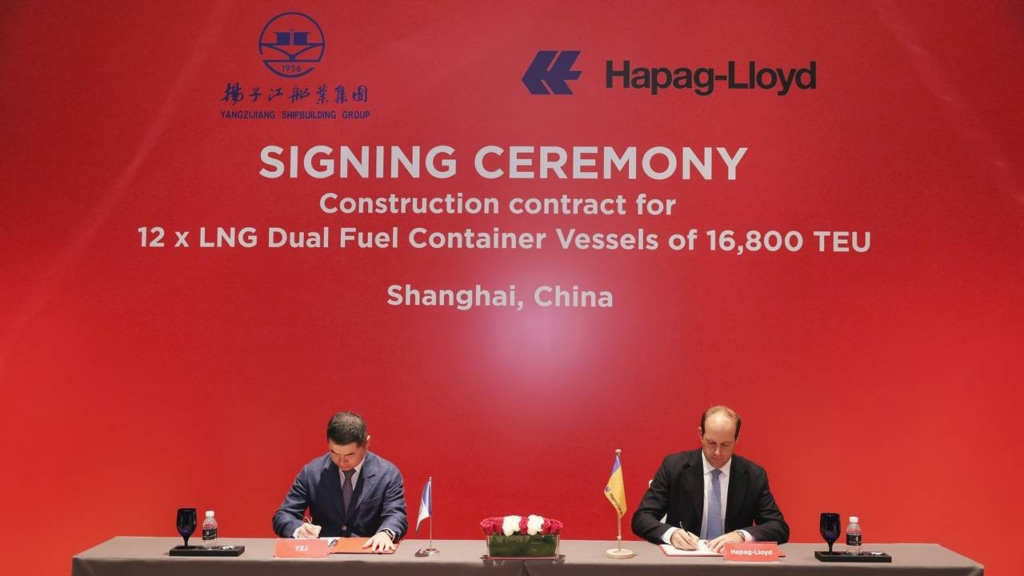
Photo credit: Hapag-Lloyd / Ren Letian (Chairman YZJ Shipbuilding Group), Dr. Maximilian Rothkopf (COO Hapag-Lloyd)
According to Hapag-Lloyd, the newbuildings will be equipped with low emission high pressure liquefied gas dual-fuel engines.
In addition, the new ships can be operated using biomethane and will also be ammonia-ready.
Hapag-Lloyd expects to take delivery of the new vessels between 2027 and 2029.
The newbuildings will have a combined capacity of 312,000 teu and involve a combined investment volume of around $4bln. A long-term financing of $3bln has already been committed.
Considering the recent investment decision announced on April 16 of this year to retrofit five vessels to methanol propulsion, Hapag-Lloyd expects this investment to be another step in the company’s efforts to prepare itself for a multifuel future.
Currently, the company controls 287 modern container ships with a total transport capacity of 2.2 million teu. In addition, it operates the largest fleet sailing under the German flag.

